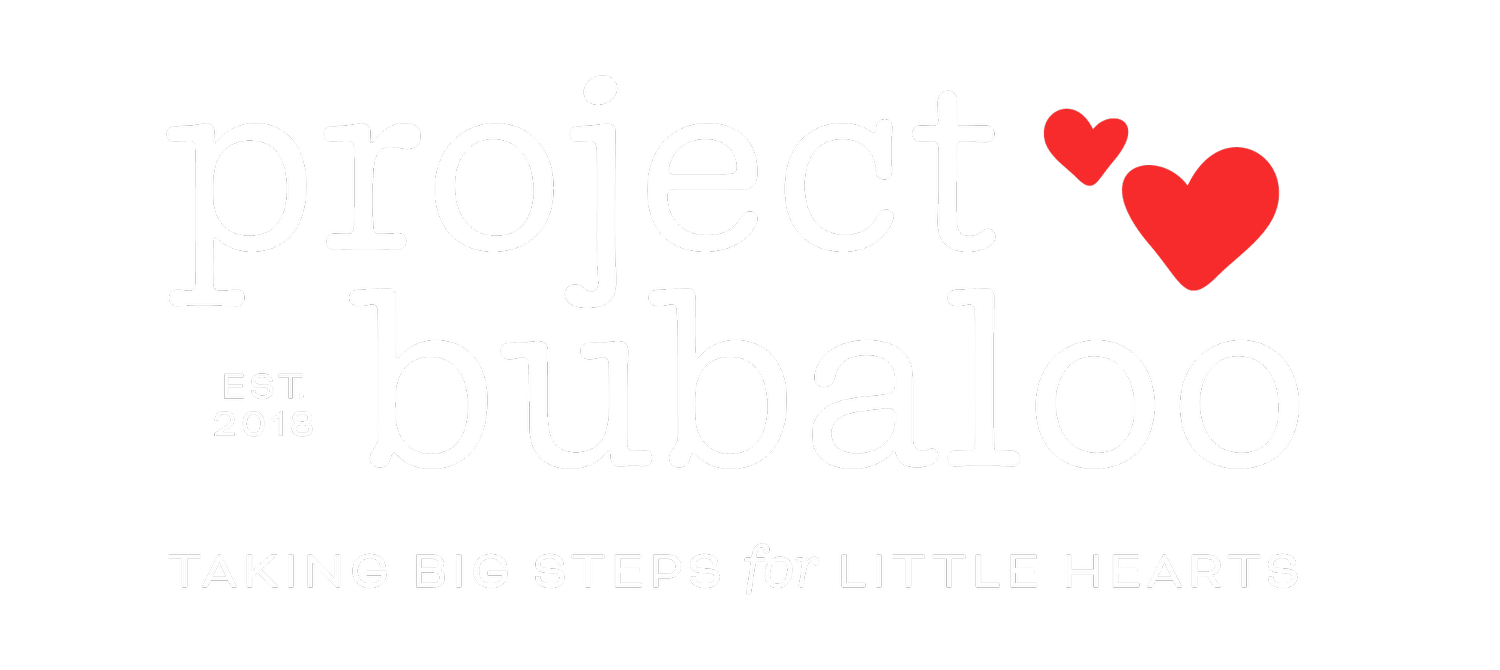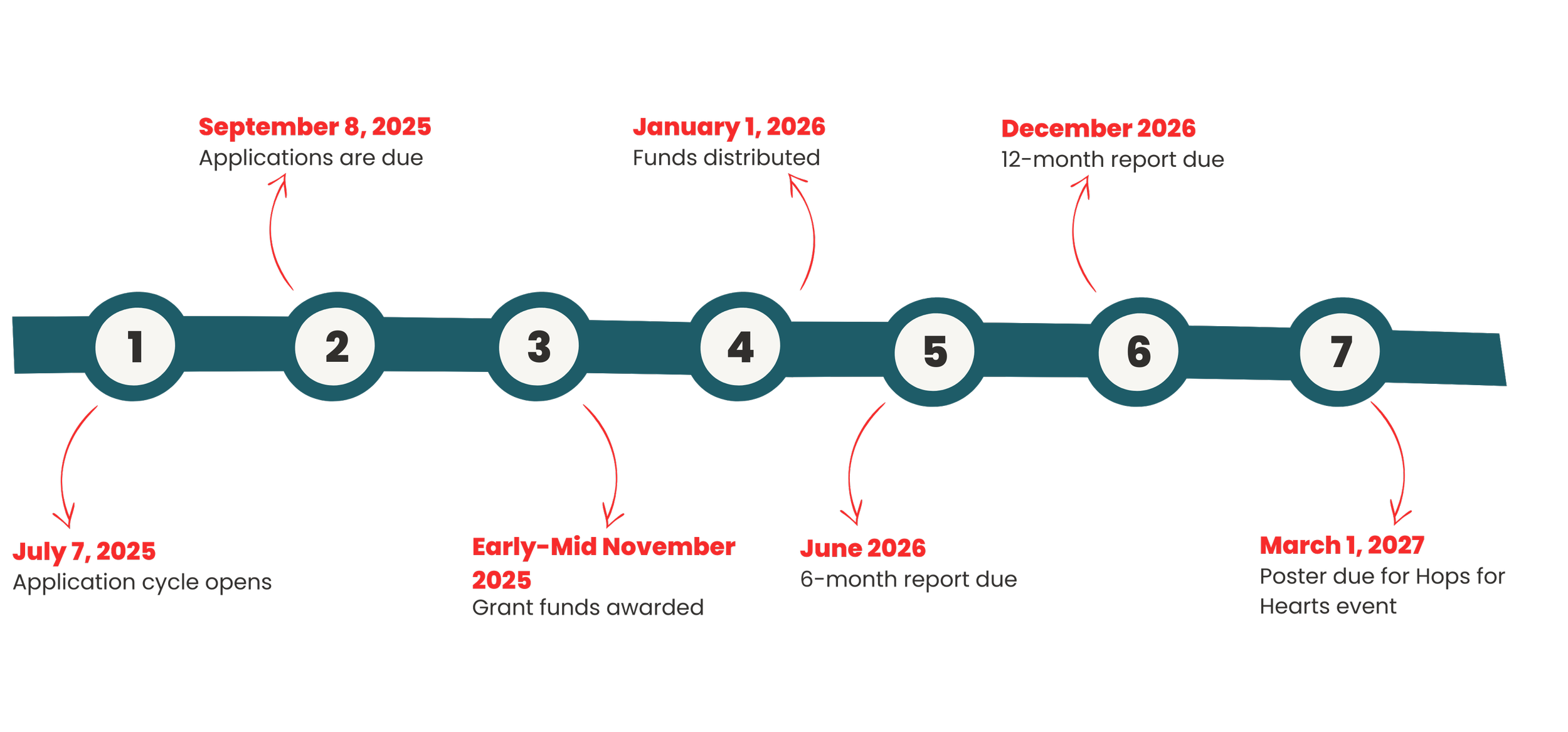Project Bubaloo Research Fund
Project Bubaloo is a Milwaukee-based non-profit organization with a mission of spreading community awareness and advancing the quality of care for those affected by congenital heart disease. Since our inception, we have raised over $900,000 for congenital heart disease. Our efforts are dedicated to funding quality, outcomes & research endeavors needed to support our vision of living in a world where CHD no longer limits a person’s life.
Quality improvement, evidence-based practice and research projects that focus on improving care, treatment, or outcomes of patients with congenital heart disease will be considered for funding. All departments including but not limited to, surgery, anesthesia, nursing, cardio-genetics, PT/OT/Speech, behavioral health, nutrition, are encouraged to apply. Click the button below to view the guidelines and submission details.
Research Fund Timeline
Past Grant Recipients
2024 Recipients
-

Principle Investigator: Alexis J. Gumm, MD
HEPATOLOGY AND GASTROENTEROLOGY, CHILDREN’S WISCONSIN
Assessing for Acute Liver Injury After Exercise in Patients with Fontan Circulation
The long-term effects of the Fontan surgery (a surgery to correct many congenital heart diseases) on other organs are poorly understood. Venous pressures are higher after surgery, leading to congestion in the liver known as Fontan-associated liver disease (FALD), which progresses to liver scarring and in some instances, liver failure and liver cancer, resulting in the need for combined heart and liver transplants.
During exercise in these patients, there is an elevation in these already high venous pressures, which puts the liver at risk for injury during exercise. Because of these changes seen with exercise, there is controversy as to whether exercise is safe for the liver. We are studying for the first time, if liver injury occurs in response to exercise in patients with Fontan circulation. Exercise as a risk factor in the development of FALD will alter our management in patients with Fontan circulation and may help prevent the development and/or progression of FALD.
-

Principle Investigator: Lisa DeVries, MSN, RN, CPNP-AC
PEDIATRIC NURSE PRACTITIONER, CHILDREN’S WISCONSIN
PhD STUDENT, MARQUETTE UNIVERSITY
CO INVESTIGATOR: Amy Newman, PhD, RN, CPNP-PC“Be Trauma Informed”: A Podcast Series for Pediatric Critical Care Nurses
"Be Trauma Informed" is a podcast series created for pediatric critical care nurses and pediatric cardiac critical care nurses that outlines the importance of realizing the prevalence of psychological trauma, recognizing the signs and symptoms of it within pediatric critical care, and preventing re-traumatization through resilience training and skill formation. This series is meant to be a flexible training platform for busy pediatric critical care nurses to listen to, pause, reflect, and transform their nursing practices to create an empowering and safe environment for their patients and families. Our project is a mixed method, pilot educational intervention that aims to increase the knowledge, attitudes, and practices of trauma-informed care among pediatric critical care nurses. The study also aims to determine the feasibility, acceptability, fidelity, safety, and preliminary effectiveness of the “Be Trauma Informed” podcast series as an educational intervention from the perspective of nurses working in pediatric critical care and pediatric cardiac critical care.
-

Principle Investigator: Dr. Zhi-Dong Ge
RESEARCH ASSOCIATE PROFESSOR IN CARDIOVASCULAR-THORACIC SURGERY, ANN & ROBERT H. LURIE CHILDREN’S HOSPITAL OF CHICAGO, NORTHWESTERN UNIVERSITY
CO-INVESTIGATOR: Dr. David Winlaw
DIVISION HEAD OF CARDIOTHORACIC SURGERY AND CO-EXECUTIVE DIRECTOR OF THE HEART CENTER, ANN & ROBERT H. LURIE CHILDREN’S HOSPITAL OF CHICAGO
PROFESSOR OF SURGERY AND PEDIATRICS, FEINBERG SCHOOL OF MEDICINE, NORTHWESTERN UNIVERSITYSingle-Nucleus RNA Sequencing to Identify Hub Genes Associated with Right Ventricular Failure in Single Ventricle Heart Disease
Hypoplastic left heart syndrome (HLHS) is a serious heart condition in which the left side of the heart, including the left ventricle and aorta, is underdeveloped and too small to pump blood to the body properly. This condition affects 2 to 3 out of every 10,000 babies born each year and accounts for up to 25% of deaths in newborns with heart defects. Treating HLHS involves a series of surgeries to reconfigure the heart, ultimately creating a single pumping chamber. However, one of the most serious challenges these patients face is failure of the right side of the heart, known as right ventricular failure (RVF). Unfortunately, the genes involved in causing RVF in these patients remain unknown. This project aims to solve that mystery using advanced technology called single-nucleus RNA sequencing (snRNA-seq). This technique will help identify key genes that may contribute to RVF in HLHS patients. By pinpointing these genes, we hope to discover new treatments to improve care and outcomes for individuals living with this challenging heart condition.


